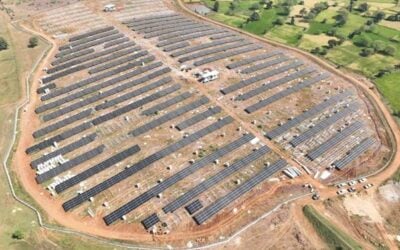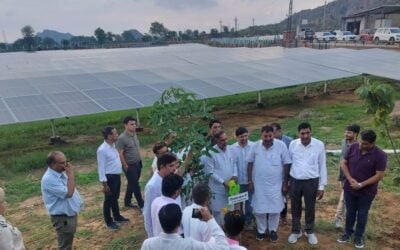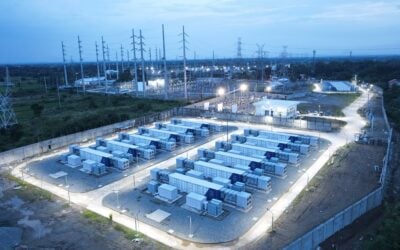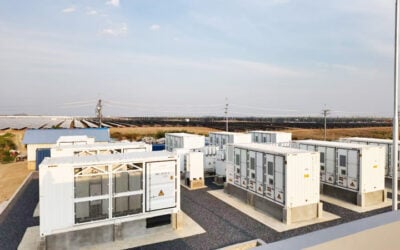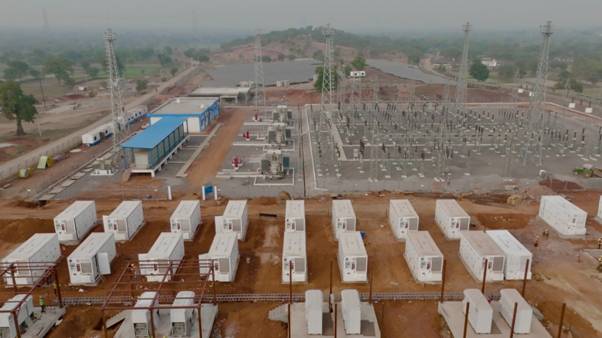
Solar Energy Corporation of India (SECI) has launched a tender for battery energy storage systems (BESS) with aggregate output and capacity of 1,000MW/2,000MWh.
In what is thought to be India’s largest tender to date for standalone BESS resources, the state-owned corporation is proposing to sign Battery Energy Storage Purchase Agreement (BESPA) contracts through the tender, which it launched last week (26 June).
Enjoy 12 months of exclusive analysis
- Regular insight and analysis of the industry’s biggest developments
- In-depth interviews with the industry’s leading figures
- Annual digital subscription to the PV Tech Power journal
- Discounts on Solar Media’s portfolio of events, in-person and virtual
SECI said it had received interest in utilising energy storage systems on an ‘on-demand’ basis from electricity buying entities across the country, to help them manage their energy use during both peak and off-peak times.
The corporation, set up by the Ministry of New and Renewable Energy (MNRE) has therefore responded by inviting proposals to set up the 2-hour duration systems, for connection to India’s cross-country transmission network, the Inter State Transmission System (ISTS).
The solicitation will be carried out through tariff-based competitive bidding, open to projects developed on a ‘build, own and operate’ (‘BOO’) business model.
A pre-bid meeting will take place on 12 July 2024, and bid submissions will be accepted until 5 August 2024.
SECI did not reveal the Buying Entities or off-takers it will contract for the BESS resources on behalf of, but said these will be disclosed at a later date. According to bid documents, SECI would however be entitled at its discretion to substitute different entities in different states for the selling of power from the battery storage.
In other words, the government corporation will serve as intermediary nodal agency for the use of the BESS assets and their charging and discharging in alignment with the agreements signed with developers, Buying Entities, and electric distribution companies (Discoms).
Bids must be for projects at least 50MW/100MWh cumulatively and a maximum of the full 1,000MW/2,000MWh tender.
Contracts would be for 12-year terms, with an expected two cycles per day including one full charging cycle during 10am to 4pm each day and no discharging between 10am and 2pm. Tariff bids entered into the reverse auction must be quoted in INR/MW/month.
Bidding documents and other information can be found on the SECI website.
While the biggest single standalone battery storage procurement to date, this is the latest in a line of large-scale tenders for BESS in India, with an initial focus on solar PV-plus-storage hybrid systems. There was a bigger, 3GWh technology agnostic tender carried out by SECI a couple of years ago, which was won by a pumped hydro energy storage (PHES) and renewable energy project from developer Greenko.
Several of India’s big tenders to date have been launched by SECI, which has played an instrumental role in shaping their design to MNRE and Ministry of Power guidelines, along with other tenders by regional power producers and discoms.
SECI is also hosting the first of the tenders for 4,000MWh of energy storage supported by the Union Government’s Viability Gap Funding (VGF) scheme, aimed at bridging a market gap for bulk energy storage capacity.
To help integrate 500GW of new non-fossil fuel capacity by 2030, and increase access to electricity across the country, India’s National Electricity Plan has forecast a need for 74GW/114GWh of energy storage by that time, including batteries and pumped hydro. The latter is likely to represent the majority of capacity added during this decade, according to a recent report from the Institute for Energy Economics and Financial Analysis (IEEFA) and JMK Research.


